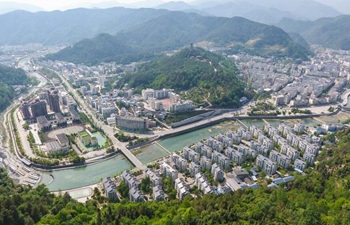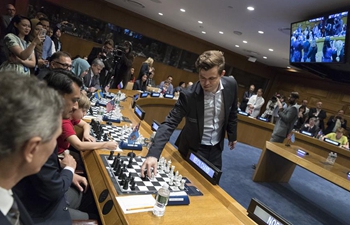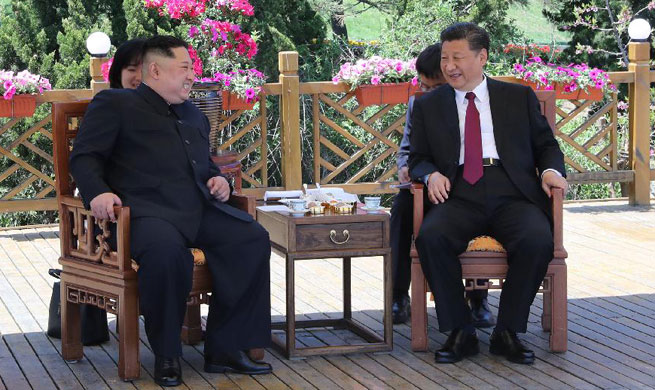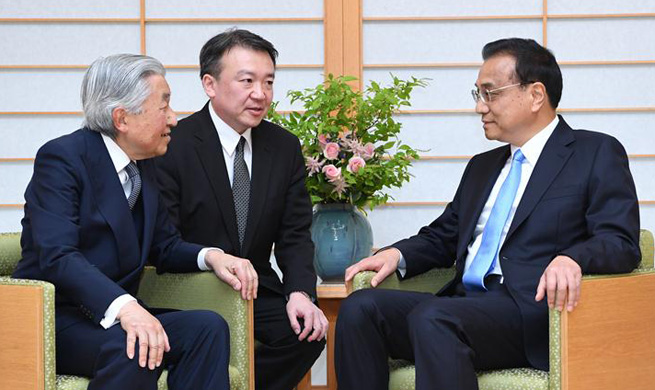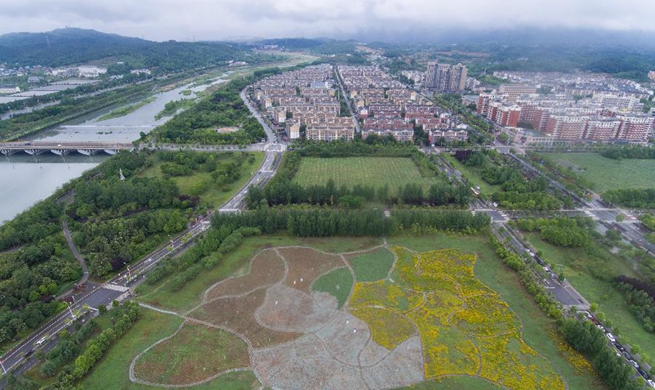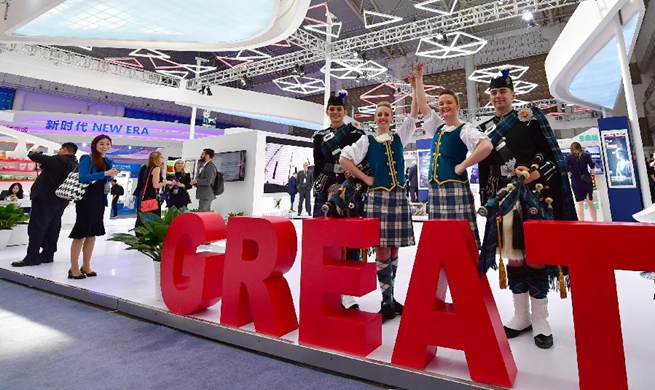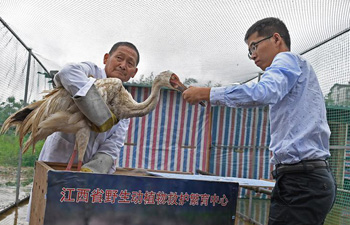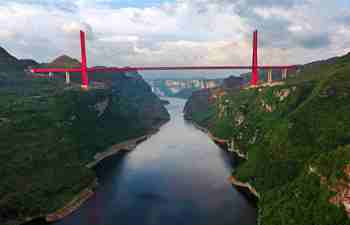by Murad Abdu
ADEN, Yemen, May 11 (Xinhua) -- Although the withdrawal of the United States from Iran nuclear deal, a landmark international agreement signed in 2015, was welcomed by the Saudi Arabia-backed Yemeni government, the move may worsen the situation in Yemen.
Yemen's Foreign Ministry said in an official press statement on Wednesday that the government welcomed Trump's decision to end the U.S. participation in the Joint Comprehensive Plan of Action (JCPOA) with Iran.
The Yemeni ministry described the decision as "a big step in the right direction to prevent Iran's destabilizing and dangerous behavior in the region and Yemen particularly."
However, a number of observers and political analysts said that Trump's withdrawal from the JCPOA will worsen the situation in the impoverished Arab country, which has already suffered from the three-year fighting.
Mansour Saleh, an Aden-based political analyst and a member of the Southern Transitional Council, told Xinhua that "the expectations show that Trump's decision will cause no significant impact on the direction of the Yemeni conflict even during the foreseeable future."
The Yemeni political analyst said that Iran is not fighting directly in Yemen, but it still supports the Houthi militias in a secret way.
He elaborated that "it's true that imposing tight economic sanctions on Iran, especially on the companies and banks that are associated with the Revolutionary Guard may lead to negative effects on the Islamic country."
But the re-imposing of the U.S. economic sanctions on Iran will not lead or force "Iran's leadership to change its strategic policies in the Middle East region and America had similar failed experiments such as the case in Cuba as well as in the Democratic People's Republic of Korea (DPRK)," Mansour said.
Regarding the role of the United States in the ongoing military conflict in Yemen, Mansour said also that "America is not engaged directly in the war of Yemen and the Houthis cannot be described as an enemy of America despite their slogans that are full of hatred for America."
He concluded his interview with Xinhua by saying that "there are previous evidences showing that the U.S. diplomacy encouraged the Houthi group to expand for the purpose of creating a case of balance in Yemen's political issue. "
On the other hand, the Yemeni political analyst Abdul-Raqeeb Hidyani explained that "one of the obvious reasons behind Trump's withdrawal from the agreement with Iran is the U.S. loss in Syria's war."
Hidyani said that "Iran and Russia made great gains in Syria and the U.S. administration is trying to create compensation by escalating indirectly against Iran that is largely involved in Syria."
He said that "U.S. withdrawal from nuclear deal will definitely benefit the Gulf Arab countries particularly Saudi Arabia which is involved in a war with the Iranian-backed Houthis for more than three years in Yemen."
The Yemeni political analyst Hidyani expected that the United States might provide support for its Middle Eastern ally Saudi Arabia as an escalation against Iran.
He said "during the next months, Saudi Arabia will receive more support from the United States and lately noticed that the pentagon dispatched troops to protect Saudi Arabia's borders."
According to Hidyani, Saudi Arabia considered Trump's withdrawal as a gain but Iran will see it as an escalation and may lead to new conflicts and military confrontations in the Middle East region.
Hidyani summarized his interview by saying that "America used to act as a balancing factor between the two rival powerful countries in the Middle East but now it is obviously backing one side against the other and this is a very dangerous move."
In a meeting with U.S. Ambassador to Yemen Matthew Tueller in Saudi Arabia's capital of Riyadh on Wednesday, Yemen's President Abdu-Rabbu Mansour Hadi said that Iran had exploited the nuclear deal negatively and "continued to interfere in the affairs of the Arab countries in line with the Persian state's expansionist agenda."
The Yemeni government, which is supported by Saudi Arabia, has long accused Iran of arming and financing the Shiite Houthis against Hadi, but Iran keeps denying the accusations.
Iran still has its embassy in Yemen's capital of Sanaa which has been controlled by the Houthis since September 2014.
The Saudi-led coalition of nine countries has carried out military operations against Houthis in Yemen since late March 2015 in an effort to restore Hadi's authority.
Houthis have been controlling much of Yemen's north by force, including the capital Sanaa since 2014.
The war has killed more than 10,000 Yemenis, mostly civilians, and displaced over 3 million, according to humanitarian agencies.




